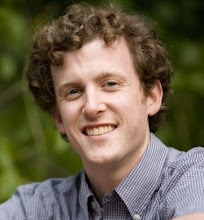A lot of these thoughts emerge, in much more elegant form than I can render, in an article for The Other Journal by Brian Bantam. Professor Bantam recently finished his Ph.D. at Duke and is now at Seattle Pacific University.
Of course, the Apostle Paul admonishes us to not be of this world, but we cannot take this as a matter of simple obedience. It is a task of de-formation. The church cannot merely ask, "What is to be done?" We must begin by asking, "What in the world are we?" We must discern together how the patterns of this world have become a part of us, how they have made us reflect something very different from Christ. [...] Our vision of what must be done and who it must be done for is always bound to who we perceive as others and who we see as our people.
Although Bantam and Katongole both begin their discussions with racial difference, the language of "de-formation" and identity ("Who or what are these people?") draws my mind immediately back to L'Arche. By committing ourselves to holy friendship with those whom society considers "deformed," the church as a whole may come to be considered "deformed". That is, we will not be conforming to the patterns of this world, which confer personal worth based on physical and intellectual ability.
Sometimes L'Arche has trouble finding houses to occupy, because neighbors and zoning boards aren't always thrilled about having such group homes on otherwise quiet neighborhood streets. "Who are these deformed people?" If only we were faithful enough that onlookers viewed every local congregation with the same wariness.

No comments:
Post a Comment